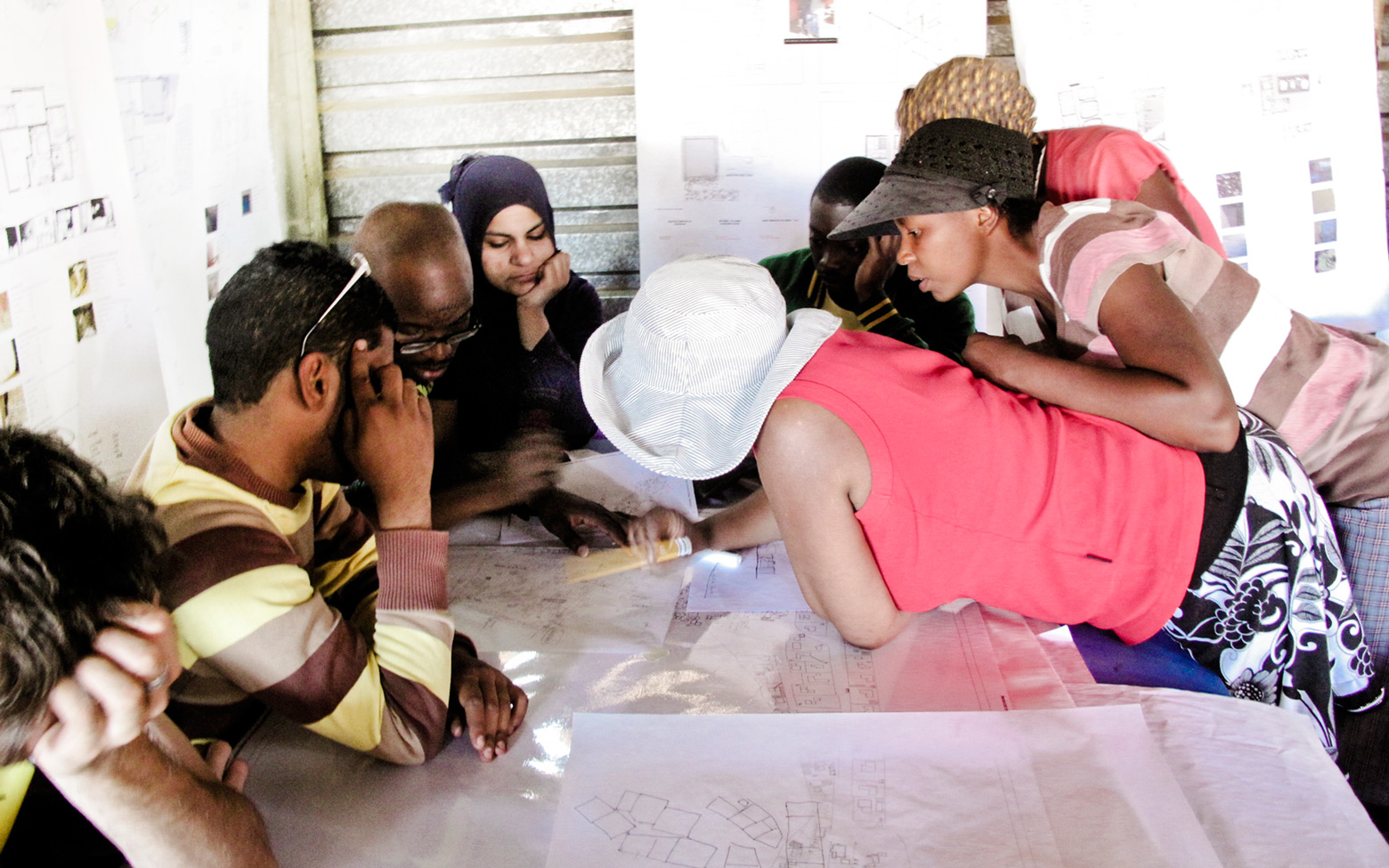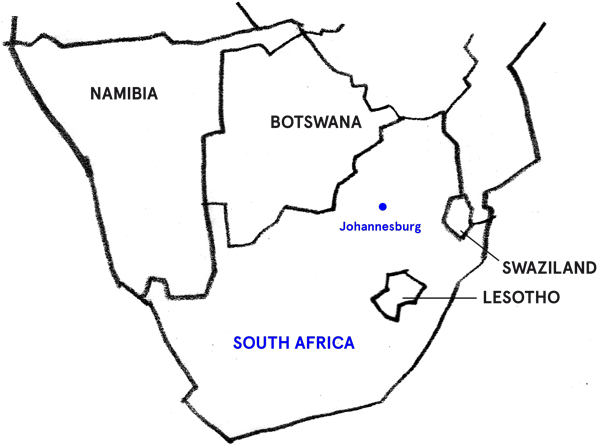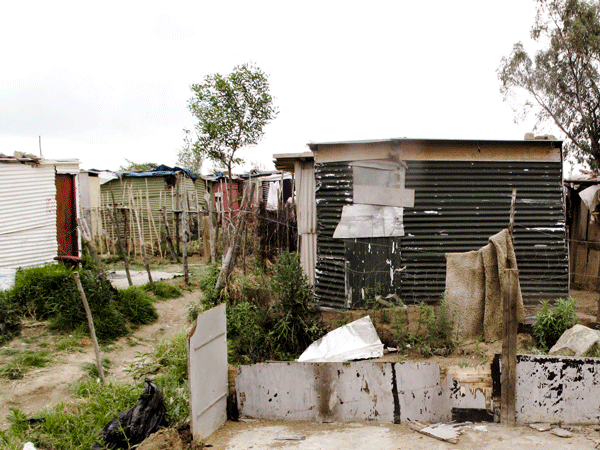-

NEIGHBOURHOOD Knowledge
Informal Studio: Ruimsig, Johannesburg, South Africa.
A course supporting residents as experts of their own living situationsArchitect: 26’10 south Architects
-
“The informal city in this case does what the formal system cannot: it provides affordable shelter and a foothold to opportunities of employment and advancement.”
Around 60 per cent of urban inhabitants in Africa live in informal conditions. This project aims to connect formal and informal settlement strategies in a people-driven process towards improving their living environments. It also represents a shift in the education of built environment professionals in South Africa. The concept was developed in 2011 by 26’10 south Architects, in partnership with the Goethe Institute, the University of Johannesburg (UJ) and various local NGOs, residents and experts. The first course was run with 16 architecture masters students over a seven week period.
The students worked together with eight local community architects from Ruimsig, an informal settlement on the western periphery of Johannesburg, on strategies for immediate and long-term improvements to the settlement. This resulted in a detailed mapping of the existing fabric as well as a proposed re-blocking plan. The process was strongly guided by the NGOs, Ikhayalami and CORC, experienced in in-situ upgrading and the community-based Informal Settlement Network, representing the interests of the residents.
The re-blocking was concerned with making minimal physical adjustments, most of which could be implemented by residents themselves, in order to improve immediate living conditions. The main objectives were the equitable distribution of land, addressing overcrowding and the activities of slumlords, the adjustment of movement routes to legal road widths for improved circulation and passage of emergency vehicles, and the creation and improvement of public and semi-public spaces.
A guiding principle of the course is that the development is not “delivered” by professionals, teachers or students, but is developed in participation with residents as legitimate experts of their own living situations.
-
26’10 SOUTH ARCHITECTS (principals Anne Graupner and Thosten Deckler) is based in Johannesburg, South Africa, and works in the city’s various contexts on projects ranging from large-scale works to housing, private residences, building conversions, exhibitions, art installations, and community events. In 2008 the practice won a three-year appointment in Diepsloot, one of South Africa’s most dynamic and complex post-apartheid informal settlements. At this time 26’10 initiated an independent research project in collaboration with the Goethe Institute investigating the “Informal City”. This project has evolved into a pilot course on participative design in informal settlement upgrading, developed for the University of Johannesburg. Courses were held in Ruimsig (2011) and in Marlboro South (2012), in which the practice was involved in pre- and post-course consultation with residents and the city. In 2012, the office was selected as the best emerging practice in South Africa in the Backstage Award.
www.housinginformalcity.co.zaPROJECT: Informal Studio: Ruimsig
LOCATION: Ruimsig, Johannesburg, South Africa
ORGANISERS/PARTICIPANTS: 26’10 south Architects, University of Johannesburg teaching staff and students, Ruimsig community architects and wider community.
SUPPORT: Goethe Institute South Africa
DATE: 2011-2012
Detailed “life-world” and “procurement” analyses undertaken by the students, with guidance from the community architects, served to highlight the realities of life in the settlement and the capacity of residents to build their own houses. Immediately after the course, 38 structures were moved and upgraded by residents assisted by the NGOs from the most congested part of Ruimsig to better positions within the settlement, and a further 96 structures are in the process of being moved and ungraded too. This project has contributed to addressing the 2.5 million unit backlog in formal houses in South Africa, with the New National Delivery Agreement targets including action plans for the upgrade of 400,000 units in well-located informal settlements by 2014.


Together with the inhabitants, Informal Studio developed a master plan for the restructuring of an informal settlement in the outskirts of Johannesburg. (All photos courtesy Informal Studio)
-
Search
-
FIND PRODUCTS
PRODUCT GROUP
- Building Materials
- Building Panels
- Building technology
- Façade
- Fittings
- Heating, Cooling, Ventilation
- Interior
- Roof
- Sanitary facilities
MANUFACTURER
- 3A Composites
- Alape
- Armstrong
- Caparol
- Eternit
- FSB
- Gira
- Hagemeister
- JUNG
- Kaldewei
- Lamberts
- Leicht
- Solarlux
- Steininger Designers
- Stiebel Eltron
- Velux
- Warema
- Wilkhahn
-
Follow Us
Tumblr
New and existing Tumblr users can connect with uncube and share our visual diary.
»Don‘t fight forces, use them.«
Richard Buckminster Fuller
Keyboard Shortcuts
- Supermenu
- Skip Articles
- Turn Pages
- Contents


